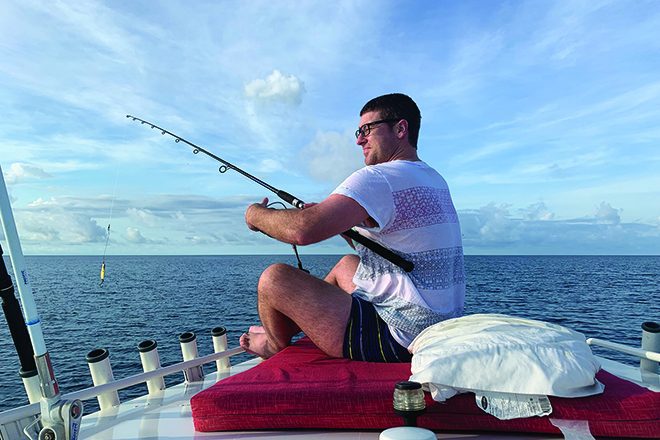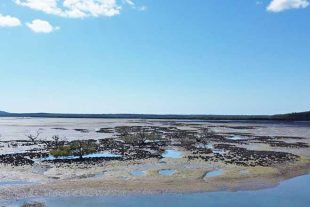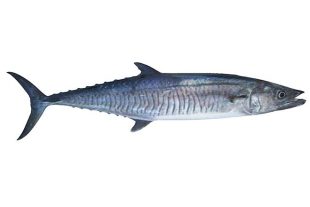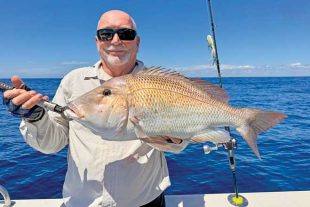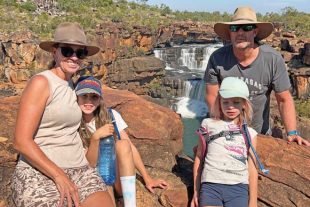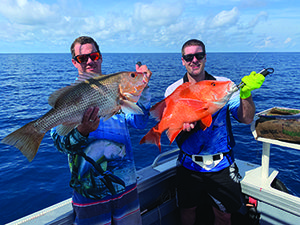
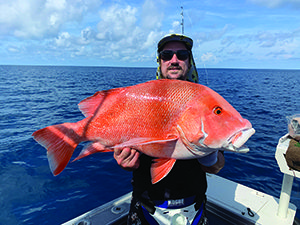
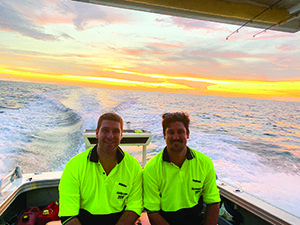
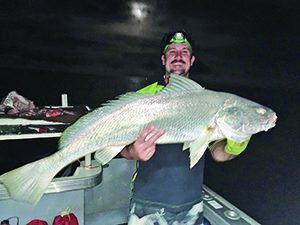
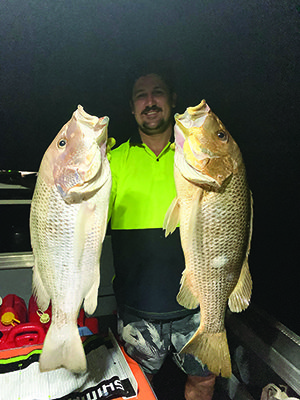
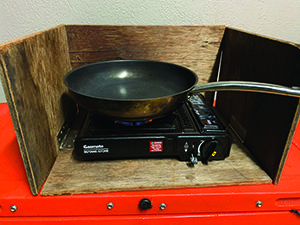
IT has been a great start to the year and we have scored cracking weather between wet season squalls and thunderstorms.
Boating during the wet can be a gamble, let alone boat camping, because you simply can’t trust weather forecasts and it can turn nasty extremely quickly. The wet certainly came late, with heavy rain and thunderstorms on Thursday Island from mid-February. That said, we were lucky with numerous long-range trips, covering up to 300 nautical miles, as we explored Cape York and Torres Strait.
Over the years I’ve been fortunate to camp in some pretty special and remote places, and I enjoy lighting a campfire on a remote beach, kicking back with a beer in hand and watching the sunset. However, because I’m often covering many miles exploring new areas in a limited time, I generally opt to camp in the boat.
A number of advantages to boat camping include getting up and fishing earlier, not having to lug gear up and down a beach and no risk of getting eaten by large-toothed critters while you sleep or make your way to and from shore. Anchoring is much easier and I’m able to relax because I’m not constantly checking on the boat. If conditions are good, I will try to anchor on some ground and night fish because often highly desirable lutjanus species such as red emperor, nannygai and fingermark fire up.
Preparation is paramount, not only to maximise the chance of fishing success, but also to ensure extended trips are enjoyable and safe for all on board. Understandably, boat camping in a trailer boat isn’t everyone’s cup of tea and you certainly have to be keen.
It can be quite uncomfortable, especially if conditions pick up, and people can become disoriented at night or feel seasick if they lose sight of the horizon. Therefore, ensure your crew is up to it and well prepped or it could be a long trip for everyone. For those wanting to do extended trips and give boat camping a go, the following suggestions may be useful.
First, plan where you will be fishing and mark out one or two safe anchorages prior to departure. This ensures you have somewhere to seek shelter if conditions deteriorate. I will usually use Navionics or even Google Earth to do this.
It isn’t always easy trying to find safe anchorage in a boat at night in rough conditions. When boat camping and anchoring up for the night, I will set an anchor drag alarm on my GPS. The distance depends on the depth I’m anchored in. While I have absolute faith in my Manson Supreme anchor, it is good boating practice to set an alarm because drifting can result in a dangerous situation, especially around shallow reefs.
If you are planning to cover a substantial distance and carrying a few extra jerry cans, be sure to fuel up in the morning and not before you’re about to hit the hay. Circulating fumes are a sure way to make you feel seasick. You need to carefully calculate fuel consumption and consider the extra fuel usage in the event the weather turns.
Ensure batteries are fully charged and, after shutting down the motor for the night, flick the isolator to a single battery and switch off electronics not being used. This leaves the GPS, anchor light and bilge on automatic.
Knowing how many people can sleep comfortably on your vessel is also important – less is best. While my 7m Fisher Maxi fishes five people easily, I will only take two others when doing extended trips and boat camping. The cabin is pretty comfy and well set up, with windows for ventilation. For those sleeping on the deck, I throw in a couple of swags.
A tarp can be handy for laying down on the deck and keeping swags clean and dry, particularly if they are going to be thrown in the cabin the next morning. A tarp when boat camping is also useful if the sky opens. Up here in the tropics, a small battery-powered fan can be worth its weight in gold, particularly on hot and humid nights.
Cooking on board is good fun and safe providing you use common sense. I have a backpack to hold my cooker, gas canisters, utensils, lighters and a few condiments. A ‘wind block’ is a foldable and hinged contraption made from marine ply. It is very handy and means I can cook on Eskies and seats without any dramas.
While I occasionally have pre-made meals such as spaghetti bolognese, I regularly cook burgers, fish wraps and hot dogs, which are quick and easy. We throw a billy on the cooker in the morning and have coffee in no time.
Having the crew keep the boat reasonably tidy and somewhat systematic is important. After hanging up the rods for the night, a few minutes spent tidying ensures we’re organised and fishing early in the morning. Washing any fresh blood off the boat makes the clean-up easier rather than leaving it until you get home.
Hessian bags are great for cutting up fish and bait as well as keeping the bait board spotless. A wet hessian bag over the bait also keeps it fresh longer. Large woven polypropylene bags (ice or fertiliser bags) make excellent reusable and durable bin bags. The bin bag sits on the inspection hatch in front of the motor and is secured to the bait board with twine. A quick rinse out at home and it’s good to use for the next trip.
A couple of other useful items to take on a boat camping and fishing trip are head lamps and a quality spotlight. Ensuring safety gear is in order and making family members and maritime organisations aware of your destination and return time is a crucial safety consideration.
For first-timers camping on the boat and night fishing, knowing another vessel is in the area can offer peace of mind, so it could be worth teeing something up with close mates who are equally keen. Know your limits and the capability of your boat and crew.
The safety of all on board is the responsibility of the person behind the wheel. With careful planning you can have successful trips travelling further, fishing for longer and camping aboard your boat. Happy boat camping.
 Bush ‘n Beach Fishing Magazine Location reports & tips for fishing, boating, camping, kayaking, 4WDing in Queensland and Northern NSW
Bush ‘n Beach Fishing Magazine Location reports & tips for fishing, boating, camping, kayaking, 4WDing in Queensland and Northern NSW

